The Pen is No Longer Mightier: Freedom Eluding Freedom of Speech
Sep. 17, 2024.
21 mins. read.
45 Interactions
This article is available in multiple translations, Click here for a list of options.
✕
Hruy Tsegaye argues that freedom of speech, once championed by nations like the U.S., is now under threat and in crisis worldwide, with new enemies emerging from within societies themselves.
In Defense of the Undefendable: What is the Price of Freedom of Speech?
Is freedom of speech a human right? Is it an inalienable right? As someone from Ethiopia, I deeply understand the value of freedom of speech. A simple critique of my government, religious groups, or of certain rich people in my country can lead to a knock at my door in the dead of night. The chilling thought that my words could provoke an arrest – or worse, a violent end – haunts me as I pen this. In a world where dissent is silenced, I tread carefully, even though I know the truth must be communicated. I often remain silent cowering just to see tomorrow. This has been true for my grandfather, my father, and perhaps for my children. Unfortunately, speech has rarely been truly free throughout the history of humankind, at least from the advent of written language onwards.
For me, freedom of speech is the ultimate human right, and I believe there should be no restrictions on it.
Why is freedom of speech so important? Many may not view it this way, but I consider it the cornerstone of civilization. Without the ability to communicate, none of humanity’s achievements would have been achieved. It is our unique capacity to master language and convey abstract ideas which sets us apart in the animal kingdom. Unlike other species, we can learn and master multiple languages – something a bonobo monkey, for instance, cannot do, as it cannot even communicate ‘snake’ in the chimpanzee or gorilla dialect.
Our ability to command language and communicate effectively has been the foundation upon which all civilizations, past and present, have been built. Therefore, restricting freedom of speech cuts societal development off at the feet. Historically, the main enemies of this right were governments and religious authorities, who sought to control thought and expression to maintain their power.
However, in a troubling shift, individuals, minority groups, and some liberals – those who historically relied on freedom of speech as their shield – are increasingly joining this suppression under the banner of combating hate speech, enforcing political correctness, and avoiding offensiveness. This trend is arguably more dangerous than freedom’s traditional hangman: governments or religious bodies. It is more dangerous and more damaging because it reshapes cultural norms and collective attitudes, potentially eroding the foundational values of open dialogue and expression.
Millions of words have been written about George Orwell’s 1984, and I won’t add more to this extensive commentary. Instead, I will remind you of a single, powerful truth from 1984: words have the power to shape thoughts. When I argue that freedom of speech should always be completely free, I am not just addressing censorship; I am warning against how restrictions can easily turn into a sinister force that fundamentally alters how people think, making certain ideas impossible to conceive. Any restriction on freedom of speech can be manipulated, posing the terrifying potential of becoming a tool for thought control through language control.
Now, consider this: what are we without our thoughts? Our thoughts form the essence of who we are; they are the foundation of our identity, our values, and our sense of reality. Without the freedom to think and express ourselves, we lose the core elements that make us rational—our capacity for reflection, creativity, and critical analysis. I challenge you to recognize that the fight for freedom of speech is a fight in defense of our ability to think freely.
The advent of social media was supposed to herald a new era of unrestricted freedom of speech, providing a platform for voices that were previously silenced. Sadly, one by one, these same platforms have gradually fallen under the control of the traditional censors, and now individuals themselves are perpetuating this trend, often advocating for the suppression of content that offends or dissents. The conversation has shifted from protecting speech to demanding to ban this and that, or censoring something offensive. In a time when technology should empower every individual to speak freely, we instead find a digital landscape increasingly marred by calls for restriction, demonstrating that the battle for freedom of speech is actually going backwards.
The Everyday Casualty: The Not So Silent Murder of Freedom of Speech
Two recent events inspired me to address this issue.
Pavel Durov, the CEO and founder of Telegram, was arrested by French authorities at Le Bourget Airport near Paris on August 24. He was arrested based on claims that Telegram has been used to facilitate criminal activities, including cyberbullying, drug trafficking, and the promotion of extremism. French authorities have accused Telegram of failing to comply with content moderation laws and not assisting with various criminal investigations. Reports indicate that the warrant for Durov’s arrest was issued by France’s l’Office mineurs (OFMIN), an agency focused on combating violence against children.
Following Durov’s arrest, there has been significant concern about the platform’s privacy practices. Critics, including privacy-focused organizations, have raised issues regarding Telegram’s encryption standards, suggesting that the platform’s lack of robust end-to-end encryption might allow authorities to access user data. Now Telegram could be compelled to hand over private communications to French authorities.
In response, Telegram has publicly defended its policies, arguing that it adheres to European Union laws, including the Digital Services Act, and that it is not responsible for abuses of the platform committed by users.
The arrest has sparked a wide array of reactions from prominent figures in the tech world. Notably, Elon Musk and Vitalik Buterin expressed support for Durov, highlighting broader concerns about freedom of speech and privacy in digital communications. Durov himself has previously voiced concerns about attempts by U.S. security agencies to gain control over Telegram’s operations, suggesting that his platform’s commitment to privacy and free speech has put it at odds with authorities in multiple countries
The second event: Brazil banned Twitter. The ban was motivated by escalating concerns about the platform’s handling of misinformation, hate speech, and disinformation, particularly during a critical election period. The Brazilian government accused Twitter of failing to take adequate measures to curb the spread of false information that could influence public opinion and disrupt the democratic process. Authorities cited Twitter’s non-compliance with local laws that require stricter moderation of harmful content, including hate speech and content that incites violence or spreads false narratives.
This move by Brazil reflects broader global concerns over the influence of social media platforms on public discourse and their role in amplifying harmful content. The ban is seen as part of a wider effort by the Brazilian government to regulate digital platforms more aggressively, ensuring they align with national interests and legal standards. The ban has raised debates over the balance between free speech and the need to protect the public from misinformation, echoing similar tensions faced by other countries grappling with the impact of social media on society.
I’m deliberately stating the facts of the incidents in a neutral way, mainly reflecting what the mainstream media has reported so far.
But I’m not neutral. I’ll be direct! I think these incidents are bogus! They are horse shit! Durov is in custody because the EU, UK, and US governments want access to all information on Telegram. Brazil banned Twitter because the government in power wants to control the information flow and is desperate to reshape the election narrative.
The USA, which is still the safest haven on this planet for freedom of speech, used to be the home of the free and the land of the brave. But with the current restrictions on freedom of speech, it will no longer be able to maintain that status. The land of the brave is not a place where butt-naked men hunt buffalo with their bare hands, or strong, sexy women fight bears just for fun while breastfeeding their kids. The land of the brave is all about freedom of thought and the right to pursue these thoughts; it is all about freedom of speech.
Why do I appeal to the land of the brave? Because this land, despite all the atrocities it has committed, is still the champion of freedom of thought and freedom of speech. The U.S. might have one thousand and one sins—which country doesn’t?—but it is also the country that teaches us the value of these freedoms. Even with its flaws, the U.S constitution is a powerful reminder of the importance of the right to think and speak freely, serving as an enduring symbol of these fundamental human rights.
The Constitution that Championed Freedom of Speech
Freedom of speech is a fundamental right enshrined in the U.S. Constitution, specifically in the First Amendment, which prohibits Congress from making any law abridging the freedom of speech or of the press. This right is rooted in the belief that free expression is essential to democracy, allowing for the open exchange of ideas, debate, and dissent without fear of government retribution. The First Amendment’s protection of free speech extends broadly, covering everything from political speech to protest, and especially to speech that might be offensive or unpopular.
In contrast, many European nations also value freedom of speech but often incorporate additional considerations such as hate speech laws, privacy protections, and the balance between free expression and social harmony. For instance, Germany and France have strict regulations against hate speech, Holocaust denial, and the dissemination of Nazi propaganda, reflecting a historical sensitivity to the dangers of extremist ideologies. The European Convention on Human Rights, which governs many European nations, protects freedom of expression but allows for restrictions deemed necessary in a democratic society for reasons such as national security, public safety, or the protection of the rights and reputations of others. This more regulated approach reflects a different solution to the balancing act between individual liberties and collective responsibilities compared to the United States.
The End of the Champion: The Clear and Present Danger
The “clear and present danger” test is a legal doctrine used to determine when limitations on free speech are permissible under the U.S. Constitution. Established in the 1919 Supreme Court case Schenck v. United States, the test was articulated by Justice Oliver Wendell Holmes Jr., who stated that speech could be restricted if it presents a “clear and present danger” of causing significant harm that the government has a right to prevent. For example, falsely shouting “fire” in a crowded theater, which could cause panic and harm, is not protected under the First Amendment because it poses a direct threat to public safety.
This standard was initially used during wartime to restrict anti-war protests or dissent that could disrupt military recruitment or operations. Over time, the test evolved. Notably, in 1969, it was replaced by the “imminent lawless action” standard set by the case of Brandenburg v. Ohio. The updated test requires that speech must be directed to inciting or producing imminent lawless action and be likely to incite or produce such action, setting a higher threshold for limiting free speech. This evolution reflects a greater emphasis on protecting speech rights while balancing public safety and order.
Alas! The doctrine of “Clear and Present Danger” breached the constitutional wall that protects freedom of speech. Since then, more parts of the wall have been pulled down. The doctrine of clear and present danger itself has become the number one clear and present danger to freedom of speech. Originally intended to justify limitations on speech in extreme circumstances, it has often been used to attack the very freedoms it was meant to protect. It threatens to make the threshold for restricting speech dangerously subjective and easily exploited.
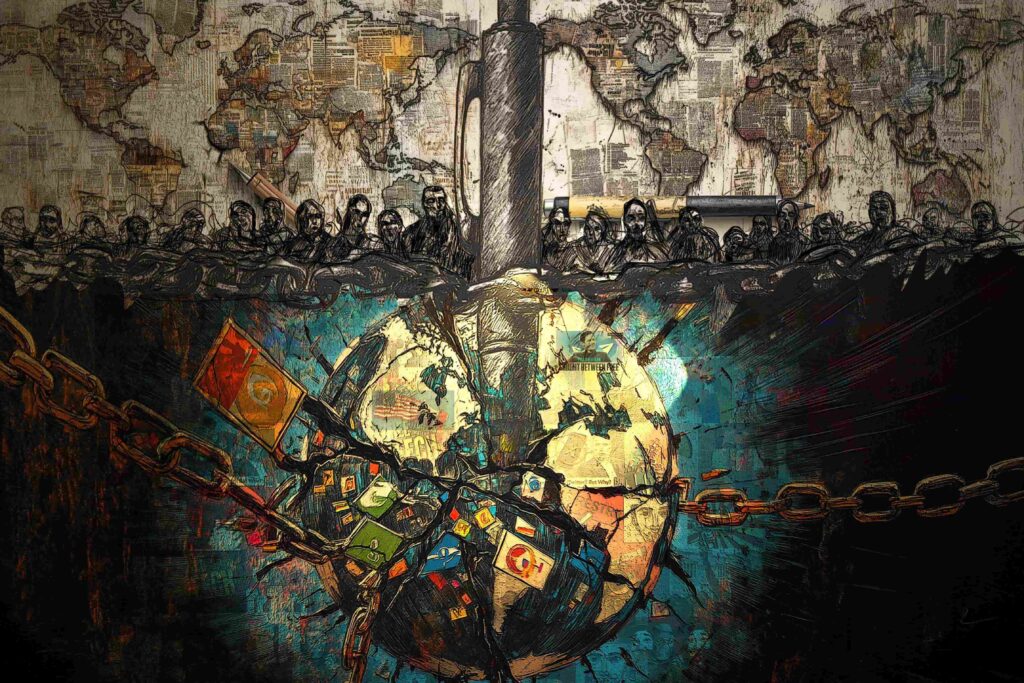
O Freedom of Speech, Freedom of Speech Where Art Thou Freedom of Speech?
I challenged myself to find another champion of freedom of speech, so I began searching every corner of the internet for rules and regulations that grant humans the unrestricted and inalienable right to freedom of speech. Unfortunately, my search did not yield any good news. Nonetheless, I will share what I discovered here.
Freedom of speech across European nations varies significantly, reflecting each country’s historical, cultural, and legal context. In Germany, freedom of expression is protected by the Basic Law, but there are stringent regulations against hate speech, Holocaust denial, and the promotion of Nazi ideology. These laws are rooted in Germany’s historical experiences with extremism, and their desire to prevent hateful or dangerous ideologies from taking hold again. Some see these regulations as necessary for protecting public order and human dignity, they sometimes raise debates about the limits of free expression; can they be used as a pretext to censor and restrict any kind of speech? While my dad can shave in the Charlie Chaplin style, a German can’t because Hitler used to shave like that! I can’t shave like Charlie Chaplin because my beard is more of a side beard, and I shave in the Wolverine style. Now, the “toothbrush mustache” is like freedom of speech, but as I told you, restrictions can shape thoughts, and this style is completely out of the thoughts of all Germans!
In France, freedom of speech is a core republican value, enshrined in the Declaration of the Rights of Man and of the Citizen. However, France also enforces strict laws against hate speech, defamation, and inciting violence. Controversies over satirical depictions of the Prophet Muhammad exemplified France’s particular challenges balancing freedom of expression with respect for religious beliefs. These tensions highlight the delicate balance between upholding free speech and protecting public harmony, but one thing is sure: expressing one’s thoughts on Telegram will soon be out of the French people’s thoughts.
The United Kingdom generally enjoys a high level of freedom of speech, but it has notable exceptions such as laws against hate speech, libel, and certain national security-related restrictions. The UK has a robust press and a tradition of lively public debate, though recent concerns have arisen over the impact of anti-terrorism legislation and of surveillance practices on journalistic freedoms. Additionally, the UK’s libel laws are among the most stringent in Europe, which critics argue can be used to stifle legitimate criticism and investigative journalism. Seeing people like Piers Morgan freely debating transgender issues on public TV is now out of the Brit’s thought process.
In contrast, eastern European countries like Hungary have seen a decline in press freedom and freedom of speech in recent years. For some it is just a continuation from the Soviet era. Countries like Hungary use defamation laws to target journalists and media companies that criticize the government, leading to a climate of self-censorship.
The European Union has raised concerns about these developments, saying they are part of a trend of democratic backsliding in these countries. But who will listen? Doesn’t the very same organization restrict freedom of speech under pretexts like ‘clear and present danger’, ‘hate speech’, etc.? Is criticizing Putin anti-Putin hate speech?
Sweden, known for its strong protections of freedom of speech and press, has some of the most liberal laws regarding free expression in Europe. The Swedish constitution guarantees freedom of expression, and the country consistently ranks high in global press freedom indices. However, even in Sweden, there are restrictions on hate speech, particularly when the speech targets ethnic or religious groups. Again we see the ‘balancing’ act between free expression and protecting people from harm. The Swedish people will soon forget their natural right to criticize other cultures or religions – it is hate speech.
In short, none of the European nations have unrestricted freedom of speech laws. Yet there is a more dangerous trend: they are imposing more and more restrictions in the name of fighting clear and present dangers or “social harmony” over free expression.
Freedom of speech in South American countries varies widely. Some nations have strong legal protections while others face significant restrictions. In Brazil, freedom of speech is constitutionally guaranteed, but it is frequently tested by political and social disputes – like the recent Twitter ban. Brazil also has a weird defamation law, and it’s often used against journalists and activists, creating a chilling effect on critical reporting.
In Venezuela, freedom of speech is severely restricted under the authoritarian government of Nicolás Maduro. This is nothing new to folks in Venezuela because his predecessor Chaves has the same laws, no one can talk against the government! The state controls much of the media landscape, and independent journalists and opposition voices frequently face harassment, censorship, and imprisonment. Argentina, on the other hand, has relatively strong protections for freedom of speech, with a vibrant media landscape and active civil society. However, there are still challenges, such as political interference in public media and economic pressures on independent outlets. While the legal framework generally supports free expression, journalists occasionally face threats and violence, particularly when covering sensitive topics like corruption and organized crime.
In Colombia, freedom of speech is legally protected, but journalists and human rights defenders often work under threat due to ongoing violence related to armed conflict, drug trafficking, and corruption. Attacks on the press – including intimidation and assassinations – make it dangerous for media professionals to operate freely. The government has made efforts to protect journalists, but impunity for crimes against journalists remains a significant issue.
Chile generally enjoys a high level of freedom of speech, with strong legal protections and a diverse media environment. However, the country has faced criticism for the use of anti-terrorism laws against indigenous activists and the usual ‘occasional’ restrictions on protests and public demonstrations.
Freedom of speech in Asia varies significantly across different countries, reflecting a broad spectrum from highly restrictive environments (North Korea) to more open (South Korea) but still ‘regulated’ spaces. In China, speech is tightly controlled by the government, with heavy censorship of the internet, media, and even personal communications. The Great Firewall of China blocks access to many foreign websites, and criticizing the government can lead to penalties including imprisonment. Surveillance and censorship are pervasive, making China one of the most restrictive countries regarding freedom of expression, balancing the positives of its magical economic growth and perception as one of the world’s superpowers. Sadly, the champions of mankind are afraid of freedom of speech.
In contrast, Japan enjoys a relatively high level of freedom of speech, though it is not without its challenges. The Japanese constitution guarantees freedom of expression, and the media operates largely without government interference.
Right-wing groups in Japan have engaged in campaigns of character-assassination against media personalities who criticize them and offend their nationalistic sensitivities by publicizing the crimes of Imperial Japan. This backlash has led to self-censorship on topics that might offend right-wing groups. Defamation laws can also be used to suppress criticism: the same tactic we’ve just seen in Brazil and the UK. A series of laws – notably the 2016 ‘National Hate Speech Act’ – have expanded the government’s powers to act against the press and individuals, in the name of preventing hate speech and ensuring national security.
South Korea has a robust tradition of freedom of speech, bolstered by a strong democratic framework, since the Korean War of 1950-53. Still, there are limitations, such as the National Security Act, which restricts speech perceived as pro-North Korean or threatening to national security. This act even have scariest restrictions like “Any person who constitutes or joins an anti-government organization, shall be punished as follows…“Online speech is also monitored, and there have been instances of censorship, especially regarding controversial or politically sensitive content.
India presents a complex picture. Freedom of speech is constitutionally protected, but the implementation is inconsistent. While the media landscape is vibrant and diverse, the government is using laws such as sedition, defamation, and anti-terrorism statutes to stifle dissent and curtail press freedoms. In the most dramatic example of ‘defamation’ being used as a pretext to punish political expression, the Prime Minister of the world’s largest democracy recently threw the leader of the opposition in jail for criticizing him. Internet shutdowns, especially in regions like Kashmir, and increased pressure on social media platforms to remove content deemed objectionable by the government further underscore the precarious situation free expression is in in the world’s most populous country.
In places like Africa and the Middle East, freedom of speech faces significant threats. Here governments often impose harsh restrictions on political speech to maintain grip on power. In many African countries, such as Eritrea, Ethiopia, Cameroon, Rwanda, Sudan, Equatorial Guinea, and Zimbabwe, journalists and activists face assassination and imprisonment as part of their job description. In Africa and the Middle East, it is considered the unchallenged right of a government to use harassment and violence to punish those who criticize it.
Perhaps a compromise solution is best. Maybe it should be legal to murder a man for criticizing a government, but illegal to also chop him up into pieces? That’s when it goes too far (remember Jamal Khashoggi’s death). At least have the manners to kill him in a way that allows an open casket burial.
Both Africa and the Middle East are characterized by governments that freely apply repressive laws, internet shutdowns, and censorship as common tools used to silence dissent. However, in the Middle East, freedom of speech is also curtailed by religious authorities, because from the old guards, religion is still in power in the Middle East. Countries like Saudi Arabia and Iran employ strict laws against blasphemy, leading to severe punishments, including imprisonment and execution.
Surprisingly, the United Nations Universal Declaration of Human Rights includes an article that seemingly provides an unrestricted right to freedom of speech. However, the declaration is merely a paper tiger, as no nation on this planet abides by it: they say it is merely a treaty!
Everyone has the right to freedom of opinion and expression; this right includes freedom to hold opinions without interference and to seek, receive and impart information and ideas through any media and regardless of frontiers.
Article 19, Universal Declaration of Human Rights
In short, after my long and tiresome search, what I have discovered is that no nation in our world has granted freedom of speech unambiguous protection!
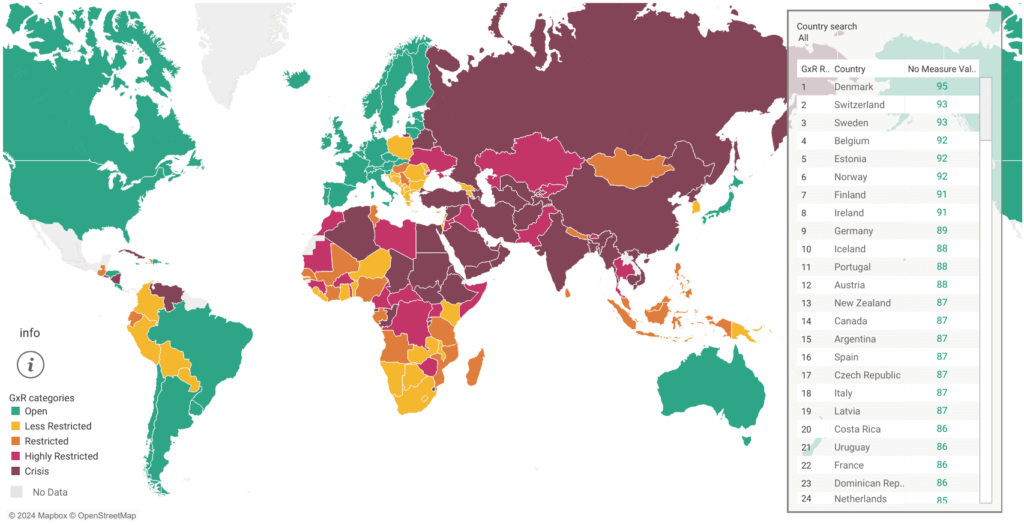
New Tyrants in the Old Stranglehold Game
Individuals, self-proclaimed liberals, and frightened minority groups have pushed back against freedom of speech in recent years. Their go-to tactic is labeling certain expressions as offensive, hate speech, or politically incorrect. While these movements often stem from a desire to protect vulnerable groups and promote inclusivity, they can sometimes cross into territory where they suppress open dialogue and dissenting opinions. This shift has created a climate where expressing controversial or unpopular views is not just discouraged but actively silenced. Even comedy is not exempt. Comedians, once seen as cultural commentators with the liberty to push boundaries, now face intense scrutiny and backlash for jokes deemed ‘offensive’ or ‘discriminatory’. With this rate, we will see one of them in the Hague for hate speech!
The new offense defenders or political correctness police, are stifling creativity, art, and humor! This is doubly dangerous because the new enemies of free speech are shaping culture, which is in turn shaping human thoughts – the young generation see an unquestionable consensus, and perceive it as how everyone expects them to think. It’s not a government or some not-so-cool religious zealot, it’s your friendly neighborhood liberal telling you how to think. The online and offline worlds are now characterized by heightened sensitivity to personal offense, and it can escalate to a total suppression of expression.
The new soldiers in the war against freedom of speech have managed to make anything clear and present danger. They’ve also demonstrated how very easy it is to stir up societal tensions around hate speech. A simple question like “what is a woman?” is no longer a simple question – in fact you are not allowed to ask the question because it’s considered hate speech against certain groups. I am just sad. This trend of labeling certain speech as unacceptable, whether it be jokes, criticism, or simply differing viewpoints, can lead to dangerous censorship that undermines the principle of free expression. Avoiding harm, and promoting respectful discourse are valid goals, yet the methods of enforcement too often involve silencing voices rather than engaging with them. This limits the marketplace of ideas, and sets a precedent where speech is judged by a subjective standard (offensiveness) rather than an objective one (harm).
Moreover, the concept of hate speech is sometimes stretched to include any speech that challenges prevailing narratives or makes certain groups uncomfortable, further narrowing the scope of acceptable discourse. The backlash against comedians, authors, and public figures for politically incorrect statements highlights a broader societal shift where the fear of offending has overtaken the value of open dialogue, ultimately posing a significant threat to the foundational right of freedom of speech.
If we are not free to speak our thoughts forth into the world, we are not free to shape our culture. Free speech is mainly about what is in your mind!
Let us know your thoughts! Sign up for a Mindplex account now, join our Telegram, or follow us on Twitter.


.png)

.png)


.png)


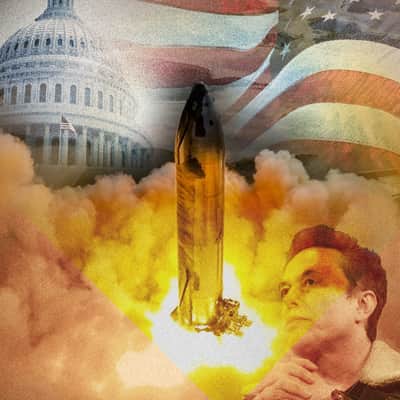
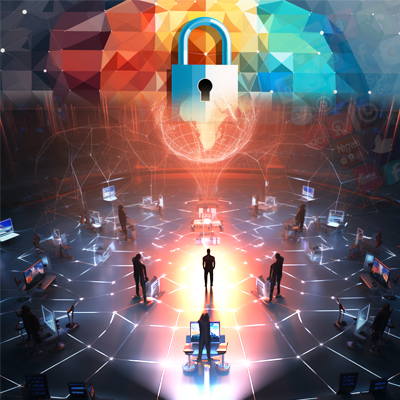


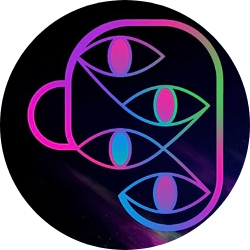


16 Comments
16 thoughts on “The Pen is No Longer Mightier: Freedom Eluding Freedom of Speech”
I find all of this really insightful. And I agree just like everyone else here that freedom of speech is dying or rather being smothered to death. But the idea of freedom of speech cannot exist without certain constitutional or regulatory limitations. UK had it nailed down bang on but look where it is headed now. And i think in the context of UK when I see people arguing against the imposed rules on current freedom of speech, I think they mistake it for absolute freedom of speech, something that cannot and shouldnt exist in this manipulative and often ruthless world.
🟨 😴 😡 ❌ 🤮 💩
I totally agree with all that you say in this post.
With one minor exception perhaps: "eastern European countries like Hungary have seen a decline in press freedom and freedom of speech in recent years..."
This is indeed the impression that you get from mainstream Western media.
But I live here in Hungary and I can tell you that every day I see people and media criticizing the government with very strong words that sound like rabid hate speech. Therefore, I have the impression that the alleged lack of freedom of press and speech in Hungary is politically motivated misinformation (aka fake news) invented and propagated by the legacy Western media.
However, your following paragraph is totally right: it is surreal that the attacks against against Hungary based on the alleged lack of freedom of press and speech come from... the European Union, an organization that is very much against freedom of press and speech.
"Thou hypocrite, first cast out the beam out of thine own eye; and then shalt thou see clearly to cast out the mote out of thy brother's eye." (Matthew 7:5)
Yes, freedom of speech is under a coordinated attack worldwide, from both the left and the right. It is up to us, the people, to protect and restore it.
🟨 😴 😡 ❌ 🤮 💩
Congratulations on the clarity and depth of your analysis! As a Brazilian, I appreciate you raising such a crucial topic. We are living in a reality we never imagined, where expressing our thoughts and criticizing ideas has become seen as a threat. Unfortunately, we have already lost the fundamental value of speaking freely. What concerns me the most is the role of the Brazilian judiciary, which has been providing institutional support to the government's censorship ambitions, with the clear aim of influencing the elections. We can no longer criticize institutions without the risk of retaliation. As someone who works in communication channels, I can affirm that the situation becomes more difficult each day. This text brings a necessary and courageous perspective on what we are facing and the danger this represents.
🟨 😴 😡 ❌ 🤮 💩
🟨 😴 😡 ❌ 🤮 💩
Hruy and Conor, you’ve done a great job on this one. It reads like a documentary and explores global issues. I was surprised I read it at all, considering I’m more of a tech guy and usually prefer tech stories, yet it captivated my attention.
Although the West still enjoys free speech, I’m concerned about recent movements, particularly with the dilemma of social harmony and political correctness, as you mentioned. Restrictions are being imposed daily. In my hometown, for example, one cannot speak freely about the transgender phenomenon. I don't like this, and I completely agree that words have the power to shape thoughts.
Finally, whoever came up with the toothbrush mustache—touché, guys, touché. By the way, about seven years ago, I had the chance to travel to Rwanda, and I was surprised to see older men sporting the toothbrush mustache. I was shocked that no one there associated it with the Nazis. This taught me that neither a thing nor a word is inherently evil; it’s how we use them that matters.
Anyway, I’m halfway on your side but still a bit skeptical. Unrestricted free speech should be humanity’s goal, but not today. I agree with others that we are not yet wise enough to handle this power, as we still don’t fully understand our responsibilities.
🟨 😴 😡 ❌ 🤮 💩
They ve never cut a man's tongue for being afraided of him telling a lie. They ve done it for being afraided he is telling the truth.
Cognitive freedom is the last resort of independent agency. It is the source and core from which the evolution of knowledge can rebuild itself even if everything else is gone. Manipulation of language is always a potential attack against one's cognition and identity.
Great job Hruy! And thanks for digging into legislation across the world.
🟨 😴 😡 ❌ 🤮 💩
HenriqC, I'm a big fan of your insights—thank you! It's been a while since we've had the opportunity to publish one of your articles. Please feel free to send us a new piece; the Mindplex Community would love to engage with your deep thoughts.
🟨 😴 😡 ❌ 🤮 💩
Thank you for those kind words. I definitely will.
🟨 😴 😡 ❌ 🤮 💩
I am what you call a Conservative. Isn't it strange? Conservatives are now the ones supporting this kind of thought while liberals are against it. The world indeed is a strange drama. I am a firsthand witness to the decline of free speech in the Western hemisphere.
You are wrong, butt-necked men are now the symbol of the land of the brave. Sadly, these butt-necked men are not the brave hunters this land used to have; these men are—well, I am not sure they want to be called men—so they are just butt-necked humans, and sadly they don't like us to exercise our freedom of speech.
The U.S. is no longer the champion of free speech and free thought. I wish this article was viewed a lot in the U.S. One cannot imagine the polarity in the country because we have forgotten the First Amendment.
🟨 😴 😡 ❌ 🤮 💩
Alright, listen up. You're always makin' this about Republicans, when are ya gonna stop playin' the victim card, huh? This ain't got nothin' to do with conservative values, in fact, freedom of speech has always been valued by liberals, and it still is! Your buddy Alamin said it, both sides are puttin' out some bad players.
🟨 😴 😡 ❌ 🤮 💩
Guys, despite its length, this is a great piece of literature. The depth and breadth make it a solid resource for understanding the global state of free speech. I'm from Iran, so I don’t need examples to illustrate how dangerous it is to assume freedom of speech is a natural right, which by the way is!
That said, I want to add a critical insight I feel is missing here. First off, Hruy did a fantastic job on the "New Tyrants in the Old Stranglehold Game" section. But here's what’s missing: it’s not just individuals from the liberal or minority camps publicly strangling free speech. The other side—conservatives, religious zealots, and majorities—are also part of this mob-led obliteration of free speech. Trust me, those in these camps are just as, if not more, invested in enforcing political correctness.
Freedom of speech is under attack from all sides, and we can’t afford to ignore that.
---
P. S. I hope your children and my children will live in a nation that caltivates free speech so they won't feel what you and I have felt.
🟨 😴 😡 ❌ 🤮 💩
Hi Alamin, long time since I have seen you here, please don't be shy to participate in other conversations too. First, thank you for your kind wishes. I, too, hope that in our children's time, freedom of speech will be a fundamental human right enjoyed across the developing world.
We addressed this aspect when we discussed the scenario in Japan, there it is the right-wing individuals are attempting to stifle free speech through mob justice.
🟨 😴 😡 ❌ 🤮 💩
This is a passionate one. I can really feel the anger and frustration in it, and I love that. But I also share the frustration that we can't do much about restrictions while true hate speech still thrives. I see only one way forward: education.
The world is a nightmare without freedom of speech, yet it's also a nightmare with freedom of speech. Ah, humanity!
🟨 😴 😡 ❌ 🤮 💩
Thank you, Bradley. I agree with your conclusion—education is key. We need to empower people with rational thinking, which, in my view, is the real cure for hate speech. Restricting free speech won’t solve the problem. People will just find new, subtler venues to spread hate. All we’ll do is create monsters in the shadows, as restrictions alone won’t stop hate speech.
🟨 😴 😡 ❌ 🤮 💩
The article on spot so I had nothing to add or refute. However, agreeing to this is the most dangerous idea. ??
🟨 😴 😡 ❌ 🤮 💩
You guys are really campaigning for Freedom of Speech. I was about to leave the site after listening to your recent podcast with David Greene addressing the arrest of Pavel Durov. Then this poped out as a recent publication.
I know how important freedom of speech is, but how can we also fight hate speech? If I say "we need to restrict hate speech" , is that minimizing freedom of speech?
Hruy or Conor are not the same us the regular racist looser who hide behind free speech: you guys know the right from the wrong but most people are not rational and cannot identify their right from their duty.
While I am all for free speech, I am concerned about Hate Speech and we do need some sort of restrictions to battle it.
🟨 😴 😡 ❌ 🤮 💩